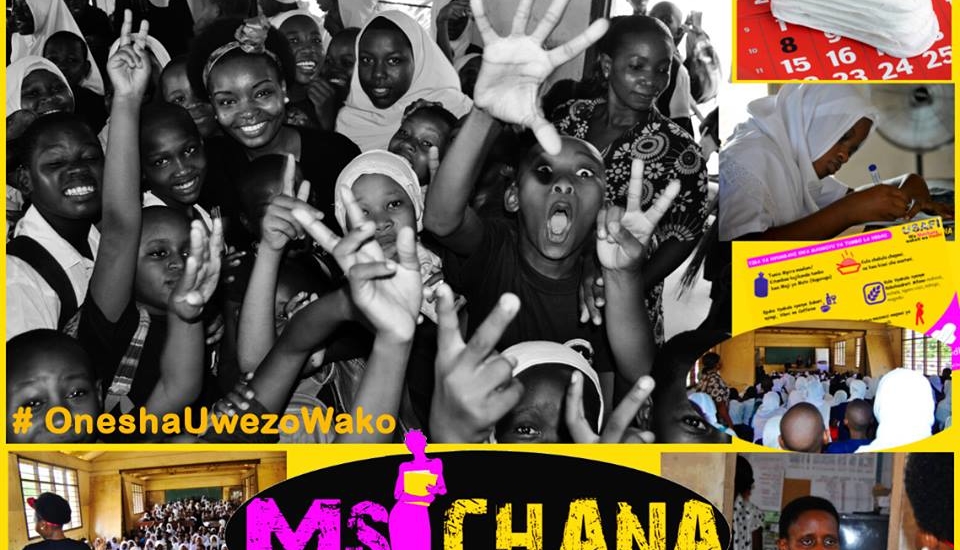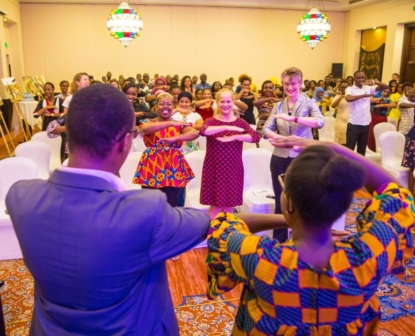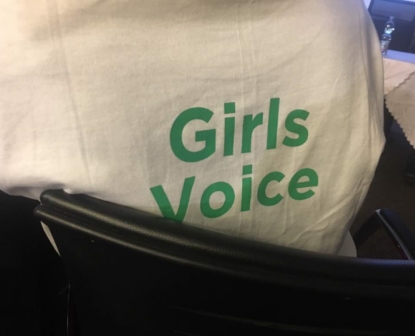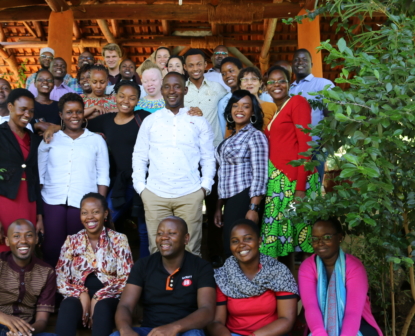Project
Ending Child Marriage in Tanzania
-
Amount Funded
72,673 EUROProject Duration
01 Aug 2017 - 31 Jul 2018 -
-
Lead organisation
-
Msichana Initiative is a registered non-governmental organisation, established to advocate for the girl child’s right to education in Tanzania. This includes addressing and finding solution for all key challenge that may limit girl child’s right to education. The initiative seeks to ensure this inherent right is given to all human beings without due regard to gender, discrimination, economic conditions, cultural, social and political justification. Msichana Initiative aims to impact the lives of young girls and women between the ages of 10 -25.
The organisational vision is to create a society with empowered girls, who are able to realise their full potential through advocating for their right to education. In 2017 Msichana through their director Rebeca Gyumi won a land mark legal case to raise the minimum of marriage to 18.
-
Organisation
Msichana Initiative is a registered non-governmental organisation, established to advocate for the girl child’s right to education in Tanzania. This includes addressing and finding solution for all key challenge that may limit girl child’s right to education. The initiative seeks to ensure this inherent right is given to all human beings without due regard to gender, discrimination, economic conditions, cultural, social and political justification. Msichana Initiative aims to impact the lives of young girls and women between the ages of 10 -25.
The organisational vision is to create a society with empowered girls, who are able to realise their full potential through advocating for their right to education. In 2017 Msichana through their director Rebeca Gyumi won a land mark legal case to raise the minimum of marriage to 18.
-
Project
As a result of the persistent problem of Child Marriage in Tanzania -particularly in rural areas- many young girls are denied their right to education and forced to get married at a very tender age (below 18 years). One of the reasons child marriage practices persist is due to a legal loophole that permits these practices. Thus far the law has not been amended as ordered by the High Court of Tanzania in its judgment made following the petition filed by Msichana Initiative through its Executive Director Ms. Rebeca Gyumi.
The petition sought to bring changes into the Law of Marriage Act of 1971 by amending sections 13 and 17 of this Act. In this case, the High Court of Tanzania had ordered the government to change the law within 1 year (July 2016 – July 2017), however the government has appealed the case through the Court of Appeal
As part of the Voice project Msichana intends to lobby the responsible Ministries to reinforce the amendments of section 13 and 17 of the Law of Marriage Act. In addition the very good evidence Msichana presented during the legal proceedings will be used as case law or jurisprudence in the current child marriage cases. However, Msichana has not been able to strategically popularise it to organisations that are pursuing cases for child protection. This project allows them to do so.
-
-
As a result of the persistent problem of Child Marriage in Tanzania -particularly in rural areas- many young girls are denied their right to education and forced to get married at a very tender age (below 18 years). One of the reasons child marriage practices persist is due to a legal loophole that permits these practices. Thus far the law has not been amended as ordered by the High Court of Tanzania in its judgment made following the petition filed by Msichana Initiative through its Executive Director Ms. Rebeca Gyumi.
The petition sought to bring changes into the Law of Marriage Act of 1971 by amending sections 13 and 17 of this Act. In this case, the High Court of Tanzania had ordered the government to change the law within 1 year (July 2016 – July 2017), however the government has appealed the case through the Court of Appeal
As part of the Voice project Msichana intends to lobby the responsible Ministries to reinforce the amendments of section 13 and 17 of the Law of Marriage Act. In addition the very good evidence Msichana presented during the legal proceedings will be used as case law or jurisprudence in the current child marriage cases. However, Msichana has not been able to strategically popularise it to organisations that are pursuing cases for child protection. This project allows them to do so.
-
”Msichana mwenye ndoto ni moto” – ”A girl with a dream is fire”
Msichana Initiative appealed to the High court of Tanzania challenging the constitutionality of child marriage in Tanzania in 2017. Tanzania’s Marriage Act of 1971 sets the minimum marriage age at 15 with parental consent for girls, while boys must be 18. The law also permits marriage for 14-year-olds under unspecified “special circumstances” if a court approves. Msichana Initiative’s team demanded that the government of Tanzania give girls equal protection under the law.
In October 2019 Msichana’s patience paid of when the High Court of Appeal of Tanzania in Dar Es Salaam rejected marriage of a girl child below the age of 18. The ruling endorsed that child marriage is formally viewed as unconstitutional and unlawful throughout the country. The court thus ordered the government to amend the Marriage Act by 2020 and ruled that the legal marriage age for both men and women should be recognised as 18 years.
In line with their objectives to devolve the results of the law change to local level, out-of-school girls, members of the Msichana Cafes (groups) have started reporting and following up on cases involving potential child marriage in their communities. They are working closely with the local government authorities and the police gender desks.
Examples of such reported cases by Msichana Cafe are:
- A case reported in Tabora town involving a girl (aged 18) who was chased out of her home at night by her mother. She didn’t bring money from their small business which she was running having been forced to leave school. Unfortunately, she got raped that night. Through Msichana Café efforts the mother of the girl was remanded and she is in police custody.
- Another case reported in Shinyanga town was about forced marriage of a Form 2 student (age 14). Her father had already accepted a dowry offer from the family of the man who had proposed to the young girl. Msichana Café took this case to the police who sent back the case to the village authority for a hearing. The ward development officer together with Msichana Café leaders called the accused with the parents of the girl to see whether they would change their minds before invoking further legal proceedings. Following the warning given by them, the parents of the girl returned the dowry. Now the girl is continuing with her studies.
These are just two examples of a successful dissemination and collaboration strategy to the local level leaders within the Msichana Café as well as local government authorities.
In addition to the above results, three Msichana Cafes in Nzega, Shinyanga district have shared their action plan with the District Community Development Officer for their reference and action. As a next step, leaders of Msichana Café in Nzega were involved in the district meeting with community-based organisations. Later they were invited to be part of the Prime Minister’s visit to Tabora. Msichana Café in Shinyanga district has established a girl club in Tinde primary where they educate the girls about their rights and how to stand up and speak out. They also created awareness in health centres, market centres and households on the importance of investing in girl education.
-
News






